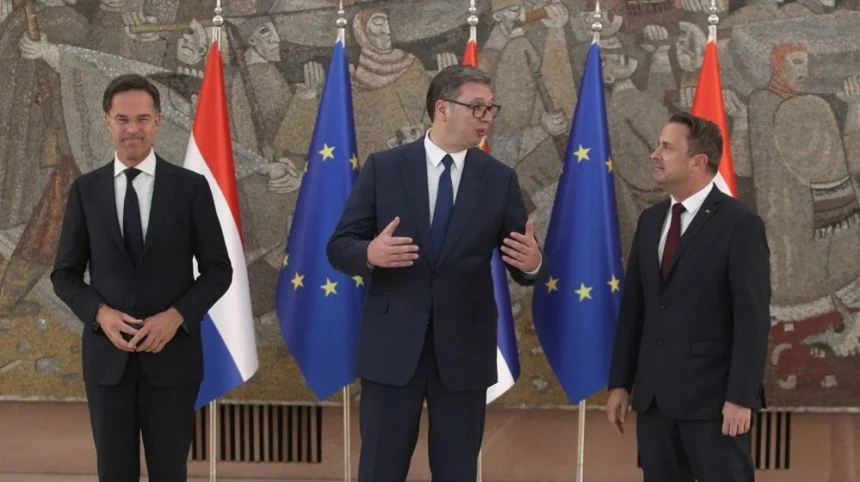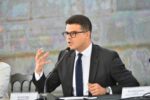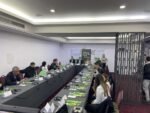In the span of just two weeks, NATO Secretary General Mark Rutte and Serbian President Aleksandar Vučić met for the second time, as tensions in Serbia, Bosnia and Herzegovina (BiH), and Kosovo dominate the international political landscape. Protests in Serbia, unrest in BiH, and heightened concerns over Kosovo have attracted increased attention from global leaders.
The frequency of direct meetings between NATO officials and Vučić indicates that Serbia has become a focal point of regional instability. Dušan Janjić from the Forum for Ethnic Relations suggests that Serbia is on the brink of a significant security risk, with the actions of the Serbian government contributing to the situation, which has captured NATO’s attention due to Serbia’s regional importance.
“Serbia’s behavior is contributing to the process, and NATO’s increased focus is likely due to the country’s geopolitical significance,” said Janjić. One key issue discussed was the use of paramilitary and parapolice forces in Serbia, linked to organized crime and the drug trade, which NATO views as a destabilizing factor.
Rutte’s earlier conversation with Vučić had also touched on the Banjska incident, underscoring that dismantling Serbia’s civil defense system was an international obligation. This system’s activation during protests in mid-March raised further concerns about its role in regional stability.
Vučić, following a meeting in Brussels, mentioned discussions regarding the behavior of KFOR and NATO in Kosovo and the situation in BiH. Janjić observed that Vučić received a diplomatic warning that Serbia’s support for Milorad Dodik’s actions in BiH could escalate tensions further and lead to another Banjska-like situation.
The European Commission’s Enlargement Commissioner, Marta Kos, described Vučić’s Brussels meeting as “constructive” and noted progress on Serbia’s EU path and the Western Balkans Growth Plan. However, Janjić pointed out that such positive assessments from EU officials may not resonate well with the Serbian public, which has become increasingly distrustful of EU intentions under Vučić’s leadership.
In the context of growing discontent, Janjić also highlighted the increasing prominence of Serbia’s disillusioned citizens as a political force. These citizens, frustrated with Vučić’s leadership, could become a crucial player in determining the country’s political future.
With protests showing signs of growing influence, it’s clear that both domestic and international dynamics will shape Serbia’s role in the region, as Vučić navigates mounting pressure from NATO and his own citizens.







